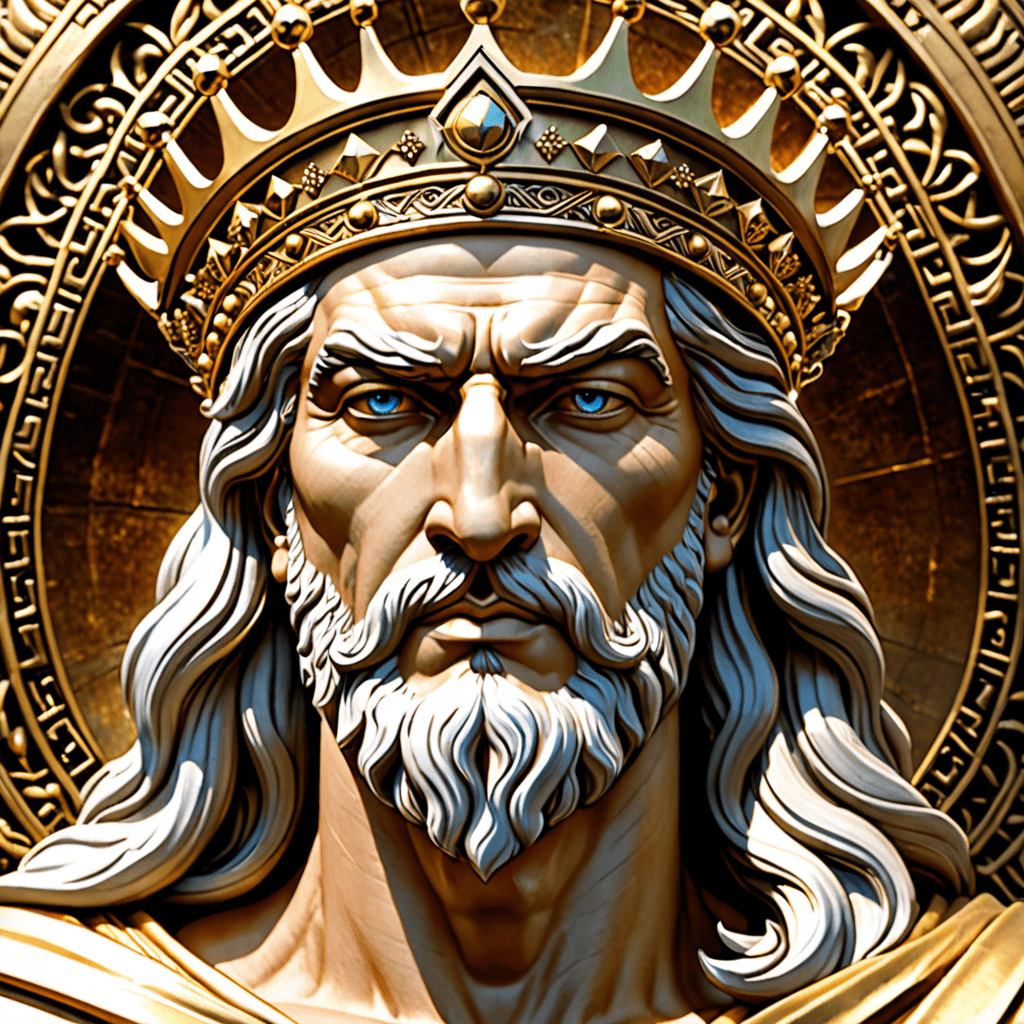The Symbolism of Crowns in Greek Mythology
In Greek mythology, crowns hold significant symbolic meanings that go beyond mere physical adornments. These symbols are laden with mythological tales, representing power, authority, and divinity among the gods and mortals.
1. The Crown of Zeus – Symbol of Ultimate Authority
Zeus, the king of the Greek gods, was often depicted wearing a crown made of oak leaves. This crown symbolized his immense power, leadership, and authority over all Olympian deities. The oak tree was sacred to Zeus, signifying strength and endurance – qualities attributed to the ultimate ruler of Mount Olympus.
2. The Crown of Athena – Symbol of Wisdom and Strategy
Athena, the goddess of wisdom and warfare, is typically portrayed with a crown made of olive branches. The olive tree was considered sacred to Athena and was a symbol of peace, victory, and wisdom. The crown of olive leaves signifies Athena’s strategic prowess and her role as a formidable warrior.
3. The Laurel Crown – Symbol of Honor and Achievement
In ancient Greece, the laurel crown, also known as the bay laurel wreath, was a symbol of victory and honor. It was awarded to heroes, warriors, and athletes who achieved great feats. The laurel crown adorned the heads of victorious champions during contests like the Olympics, demonstrating glory, triumph, and recognition of excellence.
4. The Crown of Hades – Symbol of Underworld Sovereignty
Hades, the ruler of the underworld, was associated with the crown of cypress. This evergreen tree symbolized mourning, death, and eternal life. The crown of cypress leaves signified Hades’ dominion over the realms of the dead and his role as the stern but just judge of departed souls.
Throughout Greek mythology, crowns held deeper meanings beyond their ornate appearances. They reflected the qualities, attributes, and domains of the deities who wore them, serving as powerful symbols of their roles and identities in the divine hierarchy. Understanding the symbolism of crowns in Greek mythology provides insight into the rich tapestry of stories, symbols, and allegories that characterized ancient Greek beliefs and practices.
FAQ about the Symbolism of Crowns in Greek Mythology
What is the significance of crowns in Greek mythology?
In Greek mythology, crowns were symbols of power, authority, and divine favor. They were often worn by gods, goddesses, and heroes to signify their royal status and connection to the divine realm.
Which Greek gods and goddesses are commonly depicted wearing crowns?
Greek deities like Zeus, Hera, Athena, and Apollo are often depicted wearing crowns in ancient art and literature. These crowns symbolize their supremacy, wisdom, and influence in the mythological world.
What do crowns symbolize in Greek mythology?
Crowns in Greek mythology symbolize sovereignty, leadership, victory, and immortality. They represent the divine right to rule and the bestowed power of gods and goddesses over mortal beings.
How were crowns used in Greek rituals and ceremonies?
Crowns were used in Greek rituals and ceremonies to honor deities, heroes, and victorious athletes. They were offered as prizes in competitions, worn during religious ceremonies, and placed on statues of revered figures in temples.
Are there different types of crowns in Greek mythology?
Yes, there are various types of crowns mentioned in Greek mythology, such as the laurel wreath, diadem, stephanos, and radi




